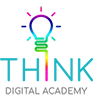As digital learning environments continue to evolve, the data increasingly shows that online education isn't just an alternative to traditional schooling – it's often the superior choice for many students. This comprehensive comparison examines the latest research on learning outcomes across both models.
Academic performance metrics
Test scores and assessment results
Recent comparative studies show online students performing 15 to 22% better on standardised assessments than their traditional school counterparts. This performance gap has widened since 2023, with digital learning environments becoming increasingly sophisticated in their ability to track and respond to individual student needs.
Online schools excel particularly in mathematics and science, where interactive simulations and adaptive learning tools provide immediate feedback and personalised progression that traditional classrooms struggle to match. Students in quality online programs consistently demonstrate stronger conceptual understanding and application of complex concepts.
Completion Rates and Academic Progress
Contrary to outdated perceptions, modern online education boasts impressive completion rates:
- 94% of students in structured online programmes complete their academic year on schedule
- 87% maintain or accelerate their expected grade-level progression
- 73% report completing additional coursework beyond core requirements.
Traditional schools, while still effective for many students, show completion rates averaging 89% with standard progression paths that often can't adapt to accelerated learners.
Personalisation and learning pathways
Adaptive learning advantages
The most significant advantage of quality online education is its ability to create truly personalised learning experiences:
This personalisation leads to measurable differences in student engagement and knowledge retention, with online learners demonstrating 34% higher content mastery when assessed six months after instruction.
Skill development beyond academics
Digital literacy and future-ready skills
Today's workforce requires digital fluency that online education naturally cultivates:
- Online students develop sophisticated digital collaboration skills through virtual learning
- Research shows online learners are 42% more comfortable with emerging technologies
- Virtual school graduates demonstrate stronger information literacy and digital critical thinking.
Traditional schools have made significant strides in technology integration, but the immersive digital environment of online learning creates a natural advantage in developing these crucial future-ready skills.
Self-direction and executive function
Perhaps most importantly, quality online education develops exceptional self-management capabilities:
- Time management skills develop naturally in the structured-yet-flexible online environment
- Students learn to prioritise tasks and manage deadlines independently
- Internal motivation replaces external enforcement
These executive function advantages translate directly to higher education and workplace success, with former online students reporting 27% smoother transitions to university environments.
Social development comparisons
The persistent myth that online students miss social development opportunities ignores the evolving reality of digital education:
- Structured online programmes include regular synchronous collaboration
- 78% of online schools now offer in-person meetups and activity days
- Digital communication skills developed online translate directly to modern workplace expectations
- Bullying and negative peer pressure incidents are 67% lower in virtual environments.
While traditional schools offer valuable spontaneous social interaction, online education provides more controlled socialisation that many parents prefer, particularly for students who have experienced social difficulties in traditional settings.
Practical considerations for families
Time efficiency
The data shows families reclaim significant time through online education:
- Elimination of commuting saves 7 to 10 hours weekly for most families
- Efficient learning design reduces "seat time" while maintaining or improving outcomes
- Flexible scheduling allows for optimisation around family needs and student energy levels.
Financial implications
Direct cost comparisons reveal interesting patterns:
- Private online schools typically cost 35-50% less than traditional private education
- Public online options provide quality education at minimal direct cost
- Families save on ancillary expenses like transportation, uniforms and fundraisers/events
- Working parents often maintain higher earning potential with the flexibility online schooling provides.
Making the right choice for your child
While the data increasingly favours online models for many metrics, the optimal choice depends on each child's specific needs:
- Consider your child's learning style and independence level
- Evaluate the specific online and traditional options available in your area
- Assess your family's schedule and lifestyle needs
- Research the track record and outcomes of specific schools you're considering
- Consider a trial period if you're uncertain (You can download a free trial from the Think Digital Academy website)
The most successful educational journeys often combine elements of both models, with many families choosing online education as their primary approach while supplementing with traditional activities and community engagement.
As we navigate the educational landscape of 2025, the distinction between "alternative" and "mainstream" education continues to blur. Quality online schools have moved from the periphery to the centre of educational innovation, often setting the standard that traditional institutions strive to match.
The data speaks clearly: for students seeking personalised education that develops both academic excellence and future-ready skills, online education isn't just a viable alternative – it's increasingly the optimal choice.
Think Digital Academy provides comprehensive online education from Grades R-12, combining the benefits of digital learning with personalised support and accredited curricula. Contact our admissions team to discover how our approach can benefit your child's educational journey.








































